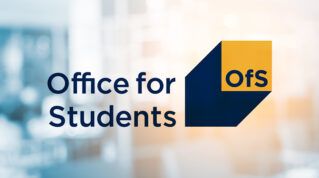The HE sector needs to engage with the Department for Education and FE providers quickly, writes Mary Curnock Cook
New qualifications are always a challenge for university admissions practitioners, and it seems that the higher education sector has still to get its head around T Levels.
T Levels have been designed for a very specific purpose – they are aligned to occupational standards and aim to qualify holders for a range of job roles.
The policy objective was to develop technical skills for the economy and to encourage students to progress directly into skilled employment or to higher technical qualifications (HTQs) at level 4 and level 5.
T Levels are designed at level 3, which should also mean that they pre-qualify students to progress to degree level study (level 6) on appropriate courses.
However, given that they are large qualifications (equivalent in size to three A-levels) in a single occupational area, they will always have narrower potential to support entry to HE than the traditional three A-level subjects. Or even the broader BTEC and applied general qualifications.
And at a time when universities are under pressure from the government and the Office for Students to ensure that students should succeed on their chosen course, universities are being cautious before embracing T Levels in their entry requirements.
Nevertheless, last week’s FE Week story that only 80 out of approximately 140 mainstream universities had confirmed that they would accept T Levels is not a good look for the higher education sector, because it has confused and disappointed staff and students alike.
But it did not come as a surprise to me. Some universities will not have courses that fit progression from the first wave T Levels in construction, digital and education/childcare. However, they might be able to accept T Levels from the subsequent waves.
Some may judge that this technical qualification, which includes specialist skills and knowledge for specified occupations, is better designed for progression pathways other than degrees.
Others may want to work with FE colleges to design a level 6 top-up after students have completed higher technical qualifications.
And others – around 80 it seems – have clearly already signed up to recruit T Level candidates on to their programmes.
But while I understand why the list of universities and courses accepting T Levels is limited at this stage, there is clearly a lot more that universities could do.
The government must be much clearer about who and what T Levels are for
First, they should make things clear to T Level students – many of whom might have expected a wealth of HE course opportunities on the back of the fanfare about UCAS points being awarded.
Even while there are good reasons for some universities to exclude T Level candidates for the time being, there’s nothing to stop the higher education sector articulating its position.
This means students making their post-16 choices know which doors are open, which are closed, and why.
Second, if universities have doubts about the suitability of T Levels, they should engage with the DfE to ensure that future waves of T Level development take those concerns into account.
If T Levels successfully attract a significant proportion of level 3 learners in future years, universities surely don’t want to be excluded from recruiting these students where the progression pathway makes sense.
Thirdly, universities would do well to engage closely with FE colleges and other providers of first wave T Levels to get a thorough understanding of the curriculum, in the same way they did when BTEC Nationals started to become an important pathway to higher education.
This is vital to ensuring students not only get into higher education courses but also get on and succeed.
Finally, all of this would be easier for universities, T Level providers and students if government were clearer about exactly what and whom T Levels are for.
A qualification highly specified against occupational standards and clearly tilted towards specific job roles might never do well in supporting pathways to higher education.
Positioning T Levels as all things to all pathways is unfair to students when the choices they make at 16 are so critical to their future working lives.

















Your thoughts